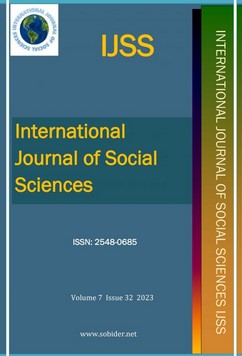Avrupa Ortak Dil Çerçeve Programı Kapsamında Açılan Erasmus Yoğun Dil Kurslarının Dil Öğrenimi Bağlamında İncelenmesi
Examination of Erasmus Intensive Language Courses Opened within the Framework of the European Common Language Framework Program in the Context of Language Learning
Author(s): Yasin KOÇAK, Mehmet ATEŞSubject(s): Foreign languages learning, Language acquisition, Higher Education , Pedagogy
Published by: SD Yayınevi
Keywords: European Common Language Framework Program; Erasmus Intensive Language Course; Language Learning;
Summary/Abstract: The language learning process is a process that will continue throughout life and can be repeated and renewed at any age that individuals need. It is expected that carrying a language passport will be mandatory for every European citizen thanks to the right of free movement and work trail obtained together with full membership in the European Union. In other words, if people who find a job in any European country show this passport to the employer, they will have the opportunity to work in that country, and the languages and levels that individuals know will be indicated in the language passport. If a person with a language passport knows the language of the country in which he wants to live, it is expected that he will get a residence and work permit in that country more quickly. In this study, the studies conducted and ongoing studies related to the Intensive Turkish Language Course of the Erasmus Program were discussed. It should be remembered that there are various exchange programs related to different fields and sub-fields besides Erasmus. The number of participants coming to Turkey within the scope of these programs is increasing every day. English French Turkish German One of the services to be provided to these participants is the service of teaching Turkish as a foreign language which is considered to be a less spoken and less taught language apart from modern languages (English, German and French) today. The Council of the European Union, which has adopted lifelong learning as a principle with the E-European action plan, attaches great importance to language development as well as cultural development. For this reason, as in all other areas of education, it is believed that it will be useful to strengthen the information infrastructure and ensure coordination on a national basis in order to effectively use information technologies in education in the teaching of Turkish as a foreign language within the scope of European Union Education and Youth programs.
Journal: Uluslararası Sosyal Bilimler Dergisi
- Issue Year: 7/2023
- Issue No: 31
- Page Range: 645-657
- Page Count: 13
- Language: Turkish

